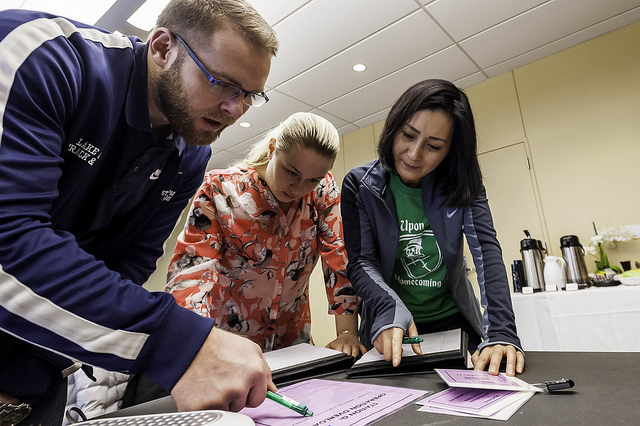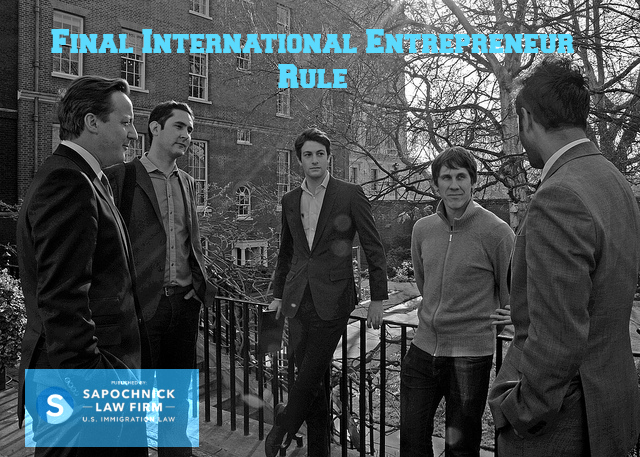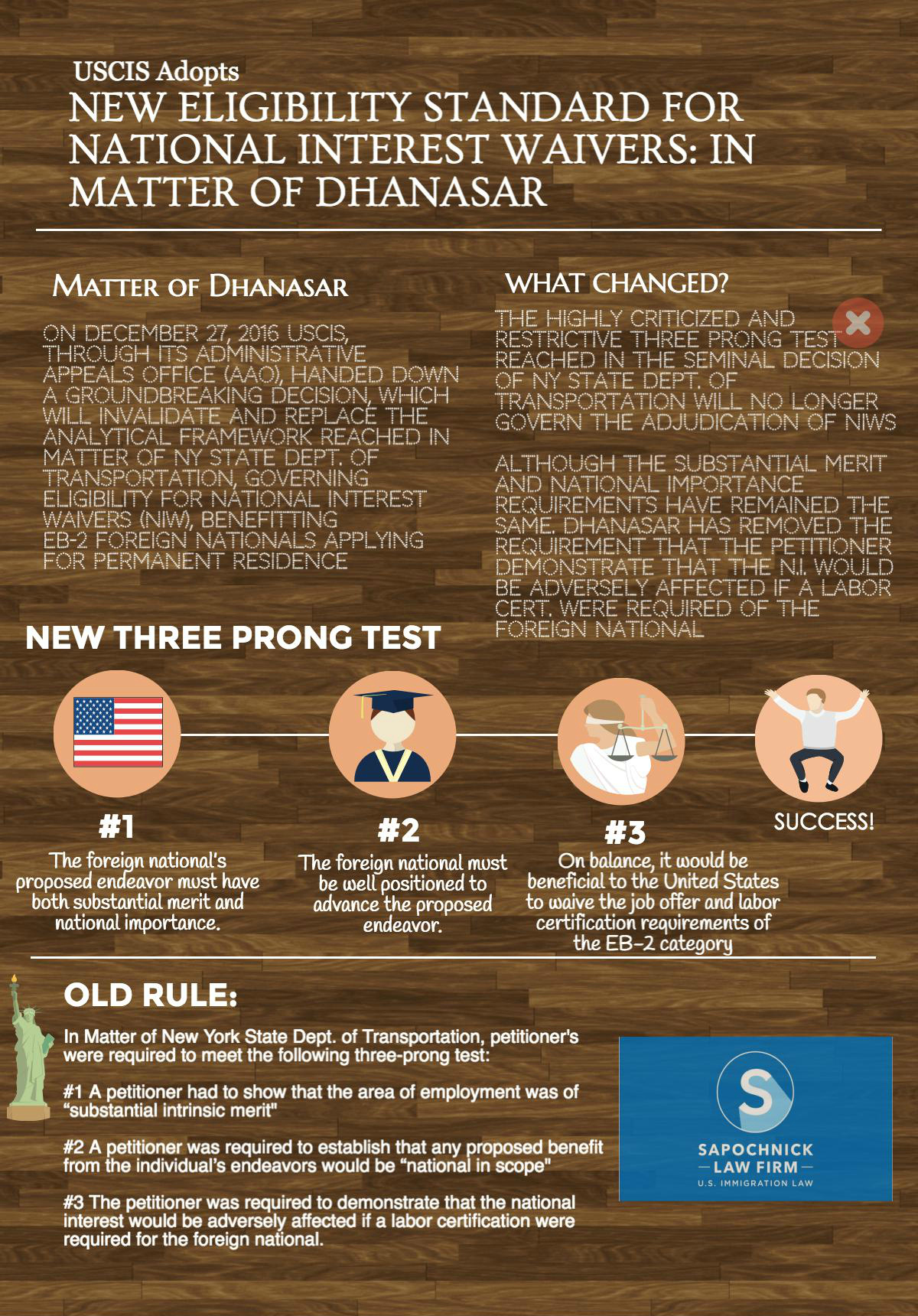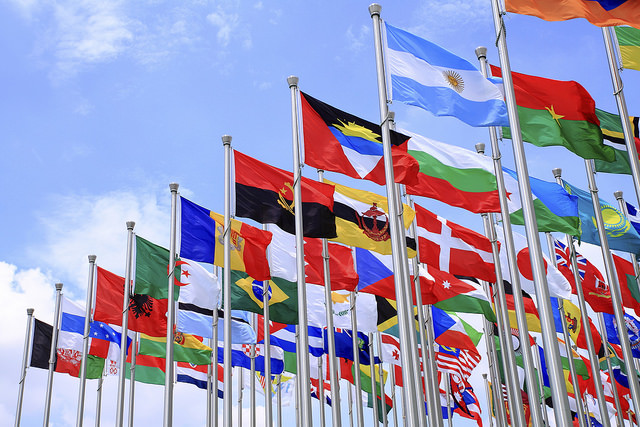
As many of you know the H-1B visa lottery for fiscal year 2018 is fast approaching. As usual, the competition will be fierce, as hundreds of thousands of highly skilled professionals prepare to file their H-1B visa petitions beginning April 1st through the April 7th deadline. While filing by April 1st (the first day that applications are accepted) certainly gives applicants greater peace of mind, filing before the April 7th deadline does not necessarily increase an individual’s chances of being selected in the lottery. Throughout the years, our office has seen the selection of many petitions that were filed on or close to the April 7th deadline. With that being said, we expect the competition this year to be even more intense, that is why we want to give you our top tips about what you should be doing NOW to prepare for H-1B season and increase your chances for success.
First some statistics on fiscal year 2017:
- For fiscal year 2017, USCIS received over 236,000 H-1B petitions, which included petitions counting toward the general cap and advanced degree exemption; approximately 3,000 more petitions when compared to H-1B petitions received for fiscal year 2016. This trend is likely to continue, giving you all the more reason to prepare for the H-1B season early on.
- For fiscal year 2017, the H-1B cap was reached within the first 5 business days of the H-1B filing period (April 1 to April 7). We expect this trend to continue as in previous years. During fiscal year 2017, USCIS received more than 20,000 petitions for the advanced degree exemption. This number will undoubtedly increase for fiscal year 2018.
- For fiscal year 2017, USCIS conducted the randomized computer-generated lottery on April 9, 2016 beginning the selection process for the 20,000 available visas counting toward the advanced degree exemption first. Then, unselected advanced degree petitions were given a second chance of being selected by being placed in the lottery toward the general 65,000 cap. Individuals holding an advanced degree from the United States thus have two shots at being selected for the lottery.
Chances of selection
The chances of being selected in the lottery for fiscal year 2017 ran at roughly 65% for foreign workers holding a U.S. advanced degree, and roughly 35% for foreign workers holding a bachelor’s degree or equivalent. Compare this to the chances of being selected in the lottery during fiscal year 2016 which ran at 60% for U.S. advanced degree holders, and 30% for bachelor’s degree holders or the equivalent. We expect the percentage of selection to continue to increase for U.S. advanced degree holders and foreign workers holding bachelor’s degree or equivalent, by roughly 5% according to recent statistics. This of course will depend on the demand for the H-1B visa for fiscal year 2018.
Office Stats
For fiscal year 2017, 35% of H-1B cap-subject petitions that were filed by our office were selected in the H-1B randomized lottery that took place early April 2016. 13% of those petitions were filed with premium processing, while 22% were filed with regular processing. In total our office filed 55 H-1B Petitions: 15 advanced degree petitions and 40 bachelor’s cap or equivalent petitions. Of these, 46 were filed with regular processing and 15 with premium processing. The majority of these petitions were filed with the California Service Center. Of selected petitions for fiscal year 2017, the top specialty occupations included: Applications Developer, Market Research Analyst, and Software Engineer.
H-1B Overview
As in previous years H-1B petitions for fiscal year 2018 will begin to be accepted by USCIS on April 1, 2017 up until April 7, 2017. Foreign workers in specialty occupations and their employers will compete for one of the coveted 65,000 H-1B visas available each fiscal year. The H-1B visa program is limited to a 65,000 congressionally mandated visa cap. Foreign workers holding a U.S. Master’s degree or higher are exempt from the 65,000 cap, however only the first 20,000 advanced degree petitions received by USCIS will qualify for the cap exemption. In addition, certain foreign workers such as foreign workers who have been offered employment under U.S. Chile or U.S. Singapore free trade agreements, and foreign workers in the Commonwealth of the Northern Mariana Islands (CNMI) and Guam are exempt from the cap, according to the Consolidated Natural Resource Act of 2008 (CNRA). Advanced degree petitions received after the 20,000 spots have been allocated will count toward the regular cap along with foreign workers holding bachelor’s degrees (or equivalent including work experience in lieu of formal education). USCIS will receive more than the 65,000 petitions for the H-1B visa program during the first five business days that the application period is open, from April 1st to April 7th. When the cap has been reached, USCIS will make an announcement, in recent years this announcement has been made on April 7th and begin the selection process to fill the 65,000 cap through a randomized lottery system. Petitions that are not selected will be rejected along with their filing fees. Duplicate H-1B petitioners during the same fiscal year, are not allowed, and may be subject to sanctions. Employers may not file an H-1B petition on behalf of an employee more than 6 months before the employee’s intended start date. Once an H-1B visa worker has been selected and approved, the foreign worker may begin employment on October 1st of that fiscal year. The H-1B visa is issued for a three-year period that can be extended for an additional three years.
Continue reading
 Visa Lawyer Blog
Visa Lawyer Blog










